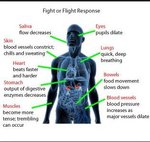barjon
Legendary member
- Messages
- 10,752
- Likes
- 1,863
I thought it was worth repeating a quote (from John Carter maybe ?) in view of all the discussion lately on 100% and all that. Here it is:
Professionals focus on limiting risk and protecting their capital. Amateurs focus on how much money they can make. Professionals always take money from amateurs.
good trading
jon
Professionals focus on limiting risk and protecting their capital. Amateurs focus on how much money they can make. Professionals always take money from amateurs.
good trading
jon



